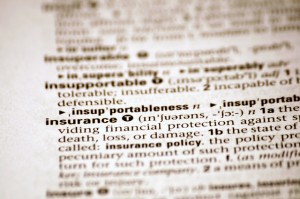You’ve just had a licensed professional install a brand new, custom, comprehensive home security system. All devices are functioning properly and you’re feeling safer already. What now? Is there anything you need to do? What is expected of you to maintain your system? In all honesty, not much. However, we live in an imperfect world, and no system is completely maintenance free. Think about it, security devices (wireless or not) including cameras, motion detectors, smoke detectors, and sensors all require some form of energy in order to communicate with the central control panel in your home. So what does that mean for you? In most cases it means the purchase and replacement of batteries.
Who is responsible for purchasing replacement parts, installing them, and inspecting the devices? During the process of researching a security company, you probably came across service contract agreements. Service contracts spell out who is responsible for what, and the associated cost/s. The length of the contract depends on the company, industry standard tends to be somewhere around 36 months. Some companies do offer a month to month service with no contract. It is important, as the consumer, to understand the terms of your service agreement and warranty as it will outline what is covered by your security systems provider, and where your responsibilities lie. Be sure to get a written copy of your agreement, it’s a good reference and it will help with any disputes.
 Here at Perfect Connections, Inc. we believe the typical industry standard 90 day warranty is not fair. That’s why we offer our clients in Northern and Central New Jersey replacement of any damaged equipment (with minor exceptions) for up to an entire year, at no cost to you. Unlike other security systems companies, we also offer a 30 day money back guarantee. Like you, we expect quality products and service to deliver value, not headaches. We pride ourselves on delivering top notch customer satisfaction.
Here at Perfect Connections, Inc. we believe the typical industry standard 90 day warranty is not fair. That’s why we offer our clients in Northern and Central New Jersey replacement of any damaged equipment (with minor exceptions) for up to an entire year, at no cost to you. Unlike other security systems companies, we also offer a 30 day money back guarantee. Like you, we expect quality products and service to deliver value, not headaches. We pride ourselves on delivering top notch customer satisfaction.
Here are some helpful questions you might want to ask your security professional:
- Am I charged for false alarms?
- What, if any, are the fees for service calls?
- How long is my contract/agreement valid?
- What happens if I move before the contract/agreement expiration?
- What is covered under my contract/agreement?
- Is there 24 hour customer service?
- Who will be entering my home for repairs/maintenance?
Maintenance Basics
As a security system owner you really don’t need to worry about the functionality of your new devices on a daily basis, custom home security systems are designed to last. After the initial installation your system should run smoothly for a long time. As previously mentioned, you might have to replace batteries every now and then, and there may be periodic software updates. Devices that typically require batteries include motion detectors, smoke detectors, carbon monoxide detectors, door and window sensors, and cameras. If you’re not comfortable, or unsure of, the type needed for your devices you can always call upon your security system provider, and they can give you that information or replace them for you. Be aware there might be a cost associated with a service call, but ultimately that cost is nothing compared to what it would be to replace devices damaged by improper maintenance.
Aside from the occasional battery replacement, what else might you want to check on? Performing operational tests to make sure everything is running correctly is a good idea. Your central control panel should have some sort of alarm test section/button. Before running a test on your system, you should alert your monitoring service to prevent a false alarm. Requesting annual inspections performed by a professional will help with the upkeep and functionality of your system. Some companies even offer annual inspections as part of their service agreement/contract. If you have any questions or are unsure of how to maintain or check your security system, always call a professional. This will help avoid accidentally setting off false alarms or damaging equipment.
Some general security maintenance tips to keep in mind are to make sure your sensors and detectors are clear of cobwebs and obstructions that may cause false alarms. Occasionally check that your lighting, interior and exterior, is working properly as it can be a powerful crime deterrent. Periodically taking a quick stroll around the perimeter of your home will help assure everything is in order, and add to your peace of mind. It couldn’t hurt to occasionally check for general wear and tear, or damage, to your security devices. Think of your home as a kit of parts, everything must be put together and maintained properly in order for it to function optimally. You wouldn’t let a leaky faucet go unrepaired for the fear of flooding, your security system is the same. If you notice something that doesn’t seem right, contact an expert, they will save you time, money, and aggravation. Your home is the physical structure that protects your family and possessions from the elements, your security system is a partially invisible shield that helps prevent all sorts of potential catastrophes. Keep it running smoothly.
While you can perform some of the basic upkeep of a security system yourself, is it always wise to inform or include your security systems professional if it is unclear what needs to be done. At Perfect Connections, Inc. we put customers first. Our specialists are knowledgeable about the devices they install, and understand the complexities of a comprehensive security system. Our team has been providing expert service in Northern and Central New Jersey since 1992. With decades of experience you can be sure Perfect Connections, Inc. understands what matters most and will provide superior home security service.
If you live in Central or Northern New Jersey and would like information on any of the topics discussed above, please call 800-369-3962 or simply CLICK HERE.
Image Credit: Image by 24oranges.nl-Flickr-Creative Commons
 What is a security system? This may seem like a silly question, but no two security systems professionals will give you identical answers. Here at
What is a security system? This may seem like a silly question, but no two security systems professionals will give you identical answers. Here at 
 n regards to EAC (electronic access control), “In a modern EAC system, the readers are designed to recognize codes (something you know), credentials (something you have), or
n regards to EAC (electronic access control), “In a modern EAC system, the readers are designed to recognize codes (something you know), credentials (something you have), or 
 olving as are the measures and technology to keep it secure. Technology can and should play an integral role in the protection and management of any healthcare facility. Healthcare facilities can be anything from a hospital to an assisted living environment, or a portable x-ray unit to a rehab center. While most of these environments are typically considered safe, the need for security is vital nonetheless. There are a multitude of external and internal factors that determine a facilities’ security needs. Safety in a healthcare environment is not only important to the staff and facility manager, but the public as well. Are your patients, staff, and assets being adequately protected?
olving as are the measures and technology to keep it secure. Technology can and should play an integral role in the protection and management of any healthcare facility. Healthcare facilities can be anything from a hospital to an assisted living environment, or a portable x-ray unit to a rehab center. While most of these environments are typically considered safe, the need for security is vital nonetheless. There are a multitude of external and internal factors that determine a facilities’ security needs. Safety in a healthcare environment is not only important to the staff and facility manager, but the public as well. Are your patients, staff, and assets being adequately protected? Drug addicts and other substance abusers can be problematic if on site pharmaceuticals are not effectively fortified. Substance abuse can be an internal staff issue as well. In fact, the
Drug addicts and other substance abusers can be problematic if on site pharmaceuticals are not effectively fortified. Substance abuse can be an internal staff issue as well. In fact, the  y’s techy world are probably being converted to digital data. A patient’s file contains personal and private information to be shared between caregiver and patient only. There is a heavy responsibility placed on healthcare organizations to uphold this confidentiality. Maintaining general
y’s techy world are probably being converted to digital data. A patient’s file contains personal and private information to be shared between caregiver and patient only. There is a heavy responsibility placed on healthcare organizations to uphold this confidentiality. Maintaining general  A custom security system is the best option because no two facilities are exactly the same; even if two buildings share the same schematics, the locations will be different, and the demographics of an area will be factored into the type of security needed. Some commonalities between systems may include features such as access controls for visitors, patients, and staff, video surveillance and alarm monitoring. According to
A custom security system is the best option because no two facilities are exactly the same; even if two buildings share the same schematics, the locations will be different, and the demographics of an area will be factored into the type of security needed. Some commonalities between systems may include features such as access controls for visitors, patients, and staff, video surveillance and alarm monitoring. According to 
 Just how much can you save by installing a security system? The answer to this question varies, it all depends on your insurance provider and the state you reside in. Although each company has a different policy, the average savings can be up to 20% (
Just how much can you save by installing a security system? The answer to this question varies, it all depends on your insurance provider and the state you reside in. Although each company has a different policy, the average savings can be up to 20% (

